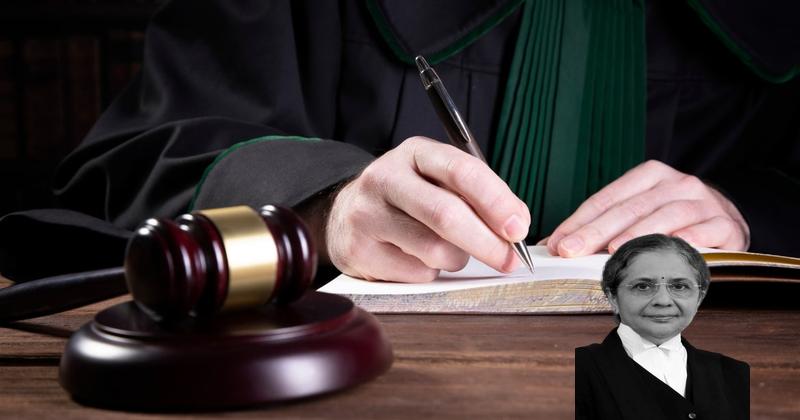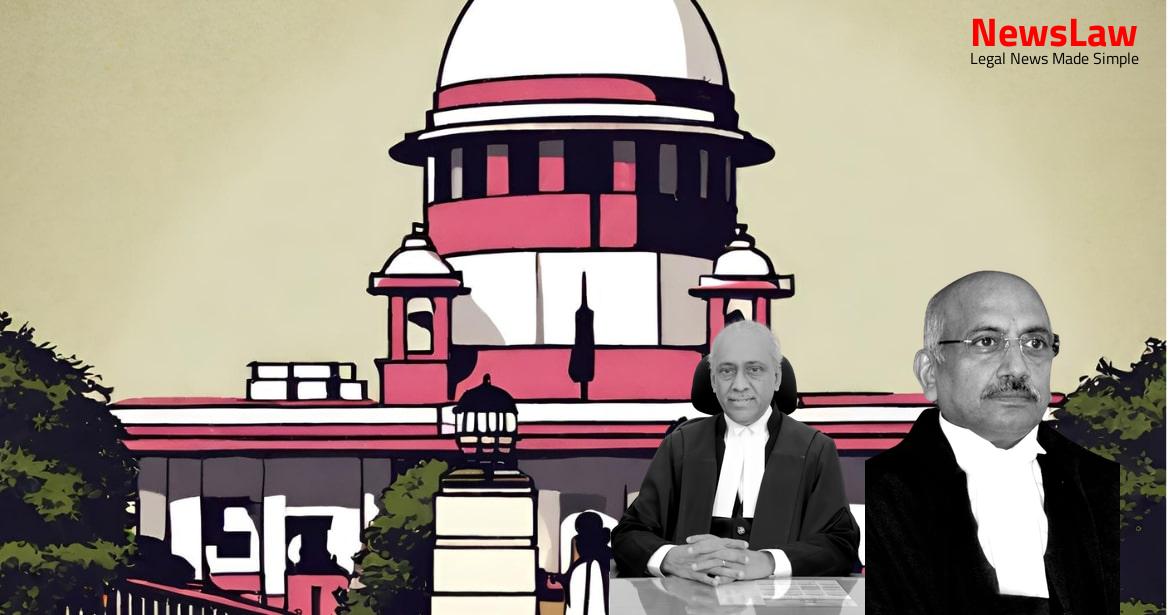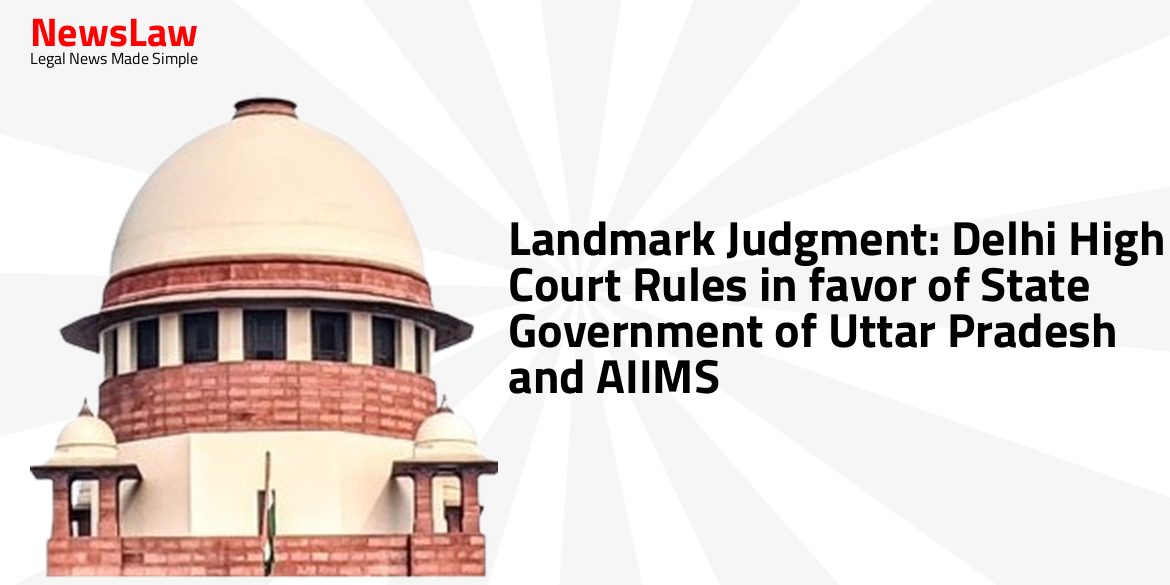In the case of Shivraj Reddy & Brothers Partnership Firm v. S. Raghuraj Reddy, the Supreme Court of India delivered a significant judgement related to the dissolution of the firm and rendition of accounts. The court examined the application of the Partnership Act and the Limitation Act in resolving the dispute between the respondent firm and the petitioner seeking dissolution and accounts. Let’s delve into the details of this crucial legal battle.
Facts
- Original suit filed in 1996 was barred by limitation.
- M/s Shivraj Reddy & Brothers partnership firm constituted in 1978.
- Primary business of the firm was construction of buildings on contract basis.
- O.S. No 67 of 1997 was filed by the plaintiff seeking dissolution of the firm and rendition of accounts.
- Plea of limitation was not raised during the pleadings in trial court.
- The trial Court declared the firm to be dissolved and directed defendants to tender accounts from 1979 till 1998.
- Firm-defendant and defendant No 2 appealed to the High Court, claiming the suit was barred by limitation due to a partner’s death in 1984.
- Single Judge of the High Court allowed the appeal, but the Division Bench overturned this decision.
- Defendant No 1’s appeal was dismissed, and Plaintiff’s appeal regarding rendition of accounts was allowed.
- The judgements by the Division Bench are being challenged in the current appeals.
Also Read: Kailash Chand v. Mukat Lal: Landmark Case on Hindu Succession Rights
Arguments
- The suit was filed by the petitioner for dissolution of the defendant firm and for the rendition of accounts in 1996.
- The petitioner’s counsel argued that the firm dissolved automatically upon the death of Partner 3 in 1984, as per Section 42(c) of the Partnership Act, 1932.
- The counsel for the petitioner claimed that the decree to dissolve the firm and direct partners to tender accounts, upheld by the trial court, was illegal and should be quashed.
- The petitioner’s counsel pointed out that the partnership deed indicated that the firm was a partnership at will, reinforcing the argument for automatic dissolution.
- The issue of limitation was not raised before the trial court, and the first appellate stage should not have allowed it to be raised later.
Also Read: Case Summary: Kripa Tori vs. State of Madhya Pradesh & Ors.
Analysis
- Courts have a duty to dismiss any suit filed after the prescribed period of limitation, as per Section 3 of the Limitation Act.
- The partnership automatically dissolves on the death of a partner as per Section 42(c) of the Act.
- Even if the defense does not raise the issue of limitation, the court must dismiss a suit that is ex facie barred by limitation.
- Previous court decisions have established the dissolution of a partnership upon the death of a partner.
- The court’s decision on limitation is intertwined with the agreement to sell on behalf of all partners and the issue of adverse possession.
- In the case of Davesh Nagalya(Dead) and Ors. v. Pradeep Kumar(Dead) through Legal Representatives and Ors., the partnership stands dissolved upon the death of a partner as per Section 42(c) of the Act.
- Limitation in the present case is a pure question of law due to the undisputed fact of the death of partner Shri M. Balraj Reddy.
- The court must decide limitation even if not raised as a defence if the suit is found to be barred by limitation.
- The court has the authority to dismiss a suit if it is barred by limitation irrespective of whether the opponent raised the plea or not.
- The case Manindra Land & Building Corpn. Ltd. v. Bhutnath Banerjee emphasized the dismissal of suits after the limitation period even if the plea of limitation was not raised.
- Referring to the judgment in V.M. Salgaocar and Bros. v. Board of Trustees of Port of Mormugao, the court highlighted the importance of adhering to the limitation period prescribed in Schedule I of the Limitation Act.
- The business activities continued by the remaining partners after death of Shri M. Balraj Reddy are deemed to be carried out in their individual capacity.
- In the absence of any hostile act and adverse possession, the suit for account rendition would not be barred by limitation.
- The period of limitation for filing a suit for rendition of account is three years from the date of dissolution, in this case, 1984.
- The firm dissolved automatically in 1984 as per Section 42(c) of the Act unless there was a contract between the remaining partners.
- The firm could only have been instituted within three years from the dissolution event, and the suit is not barred by limitation.
Also Read: Supreme Court Overturns Land Acquisition: Dinesh and Others vs. State of Madhya Pradesh
Decision
- The appeals are preferred against the judgment dated 27 March, 2014 passed by the Division Bench of High Court of Judicature of Andhra Pradesh.
- The suit filed in 1996 was found to be time-barred by the learned Single Judge and was rejected.
- The Division Bench dismissed one appeal and allowed another, resulting in conflicting judgments.
- The impugned judgment dated 27 March, 2014 was reversed and set aside as the suit was deemed time-barred.
- No costs were awarded to either party and pending applications were disposed of.
- Leaves were granted to file the appeal.
- An earlier appeal, C.C.C. Appeal No 40 of 1999, filed by the appellants was rejected in October 2001, with a limitation on seeking accounts for three years prior to the suit filing date.
- Appeals LPA No 37 of 2002 and LPA No 48 of 2002 were challenged by the appellants against the judgment and decree.
- The findings of all three Courts of the competent jurisdiction were in favor of the original plaintiff, hence no interference was warranted in the concurrent findings.
- The appeals were dismissed with no costs.
- Consequently, the decree for dissolution of the firm and accounts tendering by defendant Nos. 1 to 5 stands.
Case Title: S.SHIVRAJ REDDY(DIED) THR HIS LRS Vs. S. RAGHURAJ REDDY (2024 INSC 427)
Case Number: C.A. No.-006459-006459 – 2024



